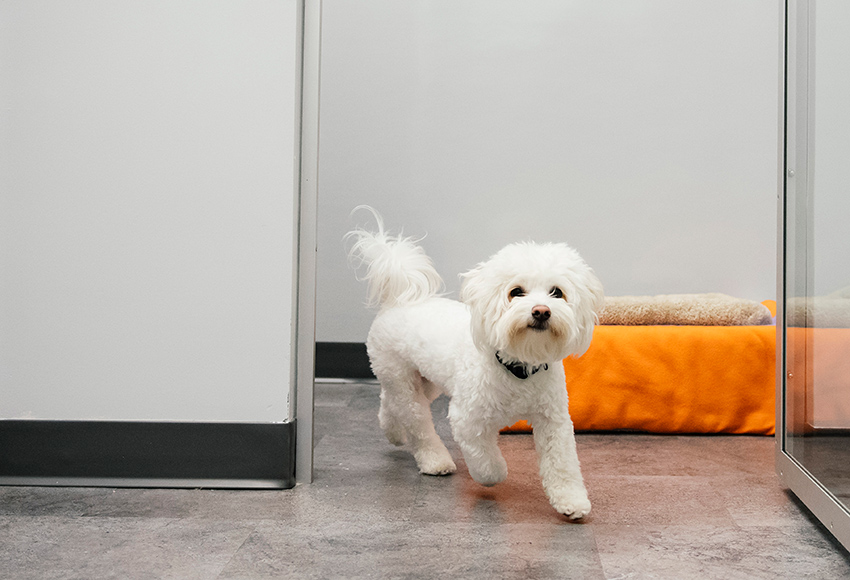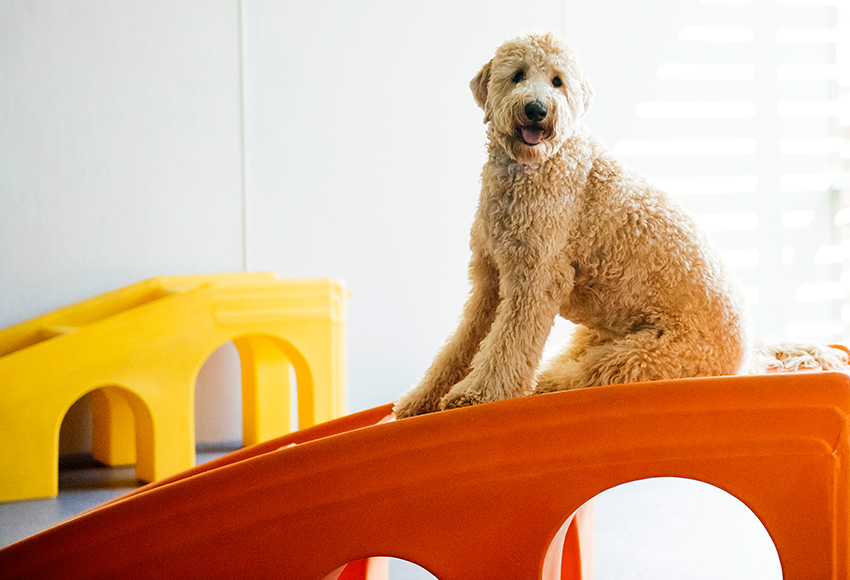How to Socialize an Older Dog

Some say, “you can’t teach an old dog new tricks,” but that’s not true! No matter the reason why your furry family member was not socialized as a puppy, it doesn’t mean they can’t learn how to behave around others and gain BFFFs (Best Furry Friends Forever). Here are some tips for socializing an adult dog:
Take Your Dog for Frequent Walks
Daily walks are great opportunities to expose your dog to new sights, sounds, smells, humans and other animals. It gives you a chance to practice proper behavior with your doggie since you’re likely to encounter more social situations during your walk. If your dog barks or responds in a disruptive or undesirable manner, refrain from scolding or tugging on their leash as it will increase their excitement and create a negative experience for them. Instead, simply walk in another direction and remove them from the situation so they can calm down.
Have People Over
Invite one or two friends over and host them in a space where your dog can feel comfortable, such as your living room or backyard. Make sure your friends do not approach, crowd or overwhelm your dog. You want your dog to make the first move and approach your guests when they are ready. If your pup does not wander over to investigate, your guests can toss a treat from time to time to show your dog they come in peace.
Slowly Work Your Way Up to a Dog Park
A dog park is the epitome of socialization but taking your anxious pup or older dog to one right away isn’t always a good idea. Start off by walking your dog around the perimeter of the park and let him watch the other dogs from a distance. Gradually work your way up to entering by approaching the fence and allowing your dog to sniff and interact with the other dogs. Make it a positive experience by taking it slow and giving a treat when they react in a friendly manner. This will create positive associations. If your dog responds aggressively or nervously, move away from the fence and start over when they feel calm again. Don’t be discouraged if your pup doesn’t have a good first visit; frequent and controlled practice will make perfect.
Monitor Your Attitude
It is important to keep in mind that dogs sense your emotions and if you seem stressed out or nervous about an experience, so will your furry friend, too. Through body language and tone, you should remain calm and confident. Your dog feeds off your reactions and attitude, so be calm, collected and act as though the situation is not a big deal.
Turn to Professionals
If your dog is not responding well to your methods, contact a professional trainer or consider taking them to a doggie daycare setting like Dogtopia. Our certified Canine Coaches have experience with all breeds and temperaments and can expertly read a dog’s body language and help you determine if daycare would be helpful in socializing your dog. When socializing an older dog, the key to success is repetition and consistency. Be patient and don’t get discouraged if they don’t catch on right away as it can take a much longer time for older dogs to adapt to new situations and environments. With each new experience, be sure to create a calm, loving environment with lots of positive reinforcement and you will have a happy, confident and well-balanced dog in no time.





